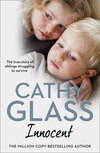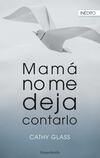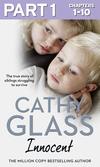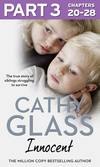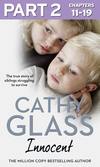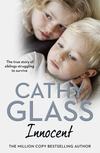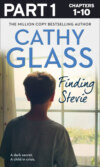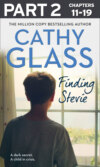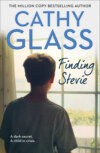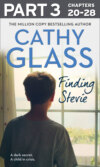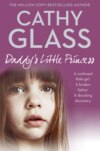Kitabı oku: «Innocent», sayfa 4
Chapter Five
Distressing
Why would Aneta doubt her children’s love for her and think they would be pleased to be away from her? I wondered as I drove home. Could it be guilt? It would make sense. If she had been abusing them then she had reason to believe they would be better off without her. The edge to Tess’s voice when she’d asked her had suggested she thought so too. Yet Molly and Kit did miss their mother dreadfully, and she was clearly beside herself with grief at being parted from them. However, most parents are distraught if their children are taken into care whether they have been abusing them or not. In my experience, anger and grief are not indicators of the level of care children have been receiving at home. Aneta had been very upset but not angry. She appeared overprotective – not taking her children to pre-school for fear of accidents and germs. As for Filip, I wasn’t sure what to make of him. He looked shattered and overwhelmed, but seemed to have had little contact with his children because of the hours he worked. Did he know what had been going on at home?
It was 2.30 when I arrived home. As I let myself in I could hear Keelie’s highly excitable voice trilling from the living room. I think most of the street could hear her. ‘Beep. Beep. Beep. Brumm-brumm. Nnneeaoowww!’ she screeched. ‘Chuff-chuff, choo-choo!’ Then what sounded like her imitating the loud wail of a siren. Strewth! I thought. Whatever was she doing?
I went through to the living room. Maggie was sitting on the sofa, watching the children play. ‘Everything OK?’ I asked, my gaze sweeping the room, which was now covered with toys, games and puzzles.
‘Nnneeaoowww!’ Keelie cried again, bringing the toy aeroplane she was holding low over the scene below.
‘Keelie found some more toy boxes in the cupboard,’ Maggie said. ‘Hope that was all right. She’s been keeping Molly and Kit very well amused.’
‘Yes, of course, thank you,’ I said.
There wasn’t space to move for the toys covering the floor, and Molly and Kit, while not actually playing, were clearly mesmerized by Keelie. The playmat that showed a busy street scene was in the centre of the room and crammed full of toy vehicles, farmyard and zoo animals, play people and buildings constructed from Lego. It wasn’t so much a busy street scene as a giant metropolis, where police cars, fire engines, lorries, tankers, ambulances, boats and cars fought for space on the roads and pavements with dinosaurs, people and tower blocks. Every so often Kellie picked up a fighter jet, space rocket, flying saucer or pterodactyl and dropped miniature barrels of hay on those below. They landed with a loud ‘Bang!’ or ‘Whoosh!’ I thought how conservative and timid my play must have seemed to Molly and Kit compared with this.
‘Very imaginative,’ I said.
‘Bang! Boom! Gotcha!’ Keelie cried, as a brontosaurus landed on a boat on the duck pond. ‘I wanted to put water in it, but Maggie wouldn’t let me,’ Keelie lamented, pulling a face.
‘You can thank me later,’ Maggie said, and I smiled.
While Molly and Kit weren’t joining in, they were clearly enthralled and couldn’t take their eyes off Keelie. As Maggie had said, she had clearly kept them very well amused.
‘How did your meeting go?’ Maggie asked.
‘OK, thanks. We’ve got contact at four o’clock.’
‘We’ll be off then. Time to pack away,’ she told Keelie.
‘Oh, do I have to?’ Keelie bemoaned like a young child might.
‘Yes,’ Maggie said. ‘If you put away the toys nicely perhaps Cathy will invite you to another play date.’
Keelie stuck her tongue out good humouredly, and Maggie and I smiled.
‘Don’t worry, I’ll do it later,’ I said.
‘No, you won’t,’ Maggie replied. ‘We will all help.’
Maggie and I joined Keelie on the floor and began packing away as Molly and Kit continued to watch Keelie, probably having never seen a teenager playing so enthusiastically before.
‘I’ve got to start a food diary to try to identify if the children are allergic to anything,’ I told Maggie as we tidied away. ‘Have Molly and Kit had anything to eat and drink this afternoon? I’ll make a note.’
‘Just apple juice. They didn’t want a snack.’
‘OK, thanks.’
Before long most of the toys were in their boxes, although I left some out for Molly and Kit to play with while I saw Maggie and Keelie out. I gave Maggie a box of chocolates as a thank-you gift.
‘You shouldn’t have done that,’ she said.
‘Yes, she should,’ Keelie said, taking them from her. ‘If you don’t want them, I’ll have them – I did all the work.’
‘You can have a couple and we’ll save the rest for later,’ Maggie told her, and Keelie pulled a face. Opening the front door, she began down the path eating the chocolates as she went. Maggie turned to me thoughtfully. ‘Molly and Kit were fine, they didn’t cry, but there’s something about them, isn’t there?’
‘What do you mean?’ I asked.
‘I know they’ve just come into care so they’re bound to be quiet, but they wouldn’t talk, not even to Keelie, and there’s a haunted look in their eyes. I’m sure they’ve got secrets. Anyway, let me know if you need any help again.’
‘Yes, I will, thank you.’
I watched her go and then slowly closed the door. A haunted look … yes, that summed up Molly and Kit perfectly, I thought. Even when they weren’t upset there was something in their eyes, a burden they carried, which at their age they found impossible to understand or communicate. If they couldn’t verbalize their suffering, it might come out in play, but not yet. They were where I’d left them in the living room, sitting on the floor by the toy box, and Molly had her arm around Kit.
‘Did you have a nice time with Keelie?’ I asked.
Both children stared at me, and then Molly managed a small nod.
‘Good. You’re going to see your mummy and daddy soon, so let’s get you ready.’
‘Mummy?’ Molly asked.
‘Yes, we are going in my car so you can see Mummy and Daddy at what’s called a Family Centre.’
Holding a hand each, I took the children upstairs where I washed their hands and faces and then changed Kit’s top and nappy. Molly’s clothes were still clean. I always liked the children I cared for to look smart for contact, as it helped to reassure the parents and gave their meeting a sense of occasion, although of course Molly and Kit were too young to appreciate that.
‘Mummy?’ Molly asked again as we returned downstairs.
‘Yes, you’re going to see Mummy and Daddy very soon.’
‘At my home?’
‘No, love, at the Family Centre. It’s like a home, with toys, books, games and chairs to sit on. You will see them for an hour or so and then I’ll bring you back here.’ I wasn’t sure how long contact would be, as Tess hadn’t told me, but it’s usually an hour and a half, sometimes two.
Before I left the house, I sent a message to Paula, Lucy and Adrian on our WhatsApp group to let them know I was taking Molly and Kit to contact and wasn’t sure what time I’d be back.
I was glad I’d already fixed the car seats in place the day before, because I’d forgotten how long it took to leave the house with two little ones. I’d also packed a bag with nappies, wipes and a drink of water for both children. The clothes the children were wearing were suitable for early September, but if no warmer clothes arrived from home then I’d buy winter clothes soon before the weather turned cold.
‘Where’s Mummy?’ Molly asked from the back seat as I drove.
‘At the Family Centre. You’re going to see Mummy and Daddy there soon.’ The children only ever asked for Mummy, not Daddy, which made more sense now I knew Filip worked very long hours. Aneta had been the children’s main care-giver, so it was natural that they would ask for her.
I’d taken many children I’d fostered in the past to the Family Centre to see their parents, and I knew that to begin with it could be difficult for everyone. Feelings run high, the children are upset, and the parents are angry that their children are in care and the only way they can see them is in supervised contact at the Family Centre for a few hours a week. Children usually adapt more quickly than their parents. The Family Centre has six contact rooms, which are attractively decorated and furnished to look like living rooms, all well stocked with games and toys. There’s a communal kitchen, bathroom and separate WCs, but the parents are continually observed with their children by a contact supervisor who also takes notes. The parents are aware that their report will go to the social worker who will incorporate it into their report to the judge, so ultimately what the contact supervisor writes will form part of the judge’s decision on whether the child is allowed home. The supervisor’s report includes comments on the parents’ relationship with their child – positive and negative. I think it’s an awful position for a parent to be in, but there is little alternative if contact needs to be supervised.
‘Is Mummy here?’ Molly asked as I parked outside the Family Centre.
‘Yes, Mummy and Daddy should be waiting inside,’ I replied. Molly was looking out of her side window at the building, while Kit was cautiously watching me. I met his gaze and smiled. The poor child looked scared and confused. I hoped that seeing their parents would reassure the children.
I undid their harnesses and helped them out of their car seats. Taking them by the hand, I walked with them slowly up the path to the security-locked main door where I pressed the buzzer. The closed-circuit television camera above us was monitored in the office, and a few moments later the door clicked open and we went in. Tess was waiting in reception. ‘Hello,’ she said brightly to us all.
Sometimes the social worker is present at the first contact, then after that they observe contact every few months, although they are sent the supervisor’s reports after each session. The parents would have been shown around the building and had the house rules explained to them. They would also have signed a written agreement that outlined the arrangements and expectations for contact.
‘The parents are in Blue Room,’ Tess said. Each of the rooms is known by the colour it is decorated. ‘I’ll take the children through. Filip has brought in some more of the children’s belongings.’ She nodded to a suitcase standing to one side. ‘He said he’s put the appointment card for the fracture clinic in there with the notes they were given on the care of the plaster.’
‘Thank you.’
‘Also, I’ve arranged a medical for the children on Monday afternoon,’ Tess continued as the children stood quietly beside me. ‘I’ve emailed the details to you.’
‘OK, thanks. I haven’t had a chance to check my emails yet. I’ll have a look this evening. What time is contact finishing today?’
‘Five-thirty, when the centre closes. The details of future contacts are in the email.’
‘All right.’
‘Come on, then, let’s see Mummy and Daddy,’ Tess said to the children.
‘Have a good time,’ I said, but the children just looked at me with sad, wary eyes.
Tess took them by the hand and, with a few words of reassurance, led them down the corridor in the direction of Blue Room. I picked up the suitcase, smiled at the receptionist, who I knew a little from my previous visits, and left.
There was just enough time to make it worth my while going home. I wanted to unpack the case so the children had their own belongings in their bedroom. I doubted there’d be much time when we got back. The drive from the Family Centre to my house is usually between fifteen and thirty minutes, depending on the traffic, and I arrived home just before four-thirty. I was the only one in, apart from Sammy, and he watched me heave the case upstairs and into Molly and Kit’s bedroom. I opened it and found the hospital appointment card and the printout on plaster-cast care at the top. I put them to one side and quickly unpacked the rest of the case. There were no toys, which was a pity, but I appreciated how difficult it was for parents to send their children’s belongings to the foster carer. Although it helps the children to settle, parents can feel as though they are collaborating in sending their children away. Still, I had plenty of toys, and Molly and Kit now had more of their own clothes, and the soft toys they’d arrived with.
With the case empty, I took it and their other bag downstairs to return them to the parents at contact. It was five o’clock now and I had to leave to collect the children. I put the appointment card and printout with some other paperwork to one side to deal with later and opened the front door. Paula was just coming in, having returned from college. We exchanged a few words and I said we’d catch up later.
When children first come into care the end of contact is often distressing for all the family. In the past I’d had to carry a child screaming and crying from the room, as there’d been no other way. Gradually the parents and children adapt to the arrangements and it becomes less fraught, although saying goodbye at the end is always very emotional. I was therefore expecting Kit and Molly to be upset when they had to say goodbye, but nothing could have prepared me for what actually happened.
I parked outside the Family Centre, took the empty cases from the car and went up to the door, where I buzzed to be let in. It’s usual procedure for foster carers to collect the child or children from the room at the end of contact. ‘It’s five-thirty, so go down,’ the receptionist told me.
I signed the Visitors’ Book and continued to Blue Room. The centre closed shortly, so other families were saying goodbye and leaving. I passed a young lad aged about eight leaving with a man I knew to be his foster carer and we said hello.
The door to Blue Room was closed. Painted royal blue, it’s imaginatively decorated with pictures of blue objects – cars, flowers, butterflies, a hat, the sky, the sea, blueberries and so on. Indeed, the whole centre is decorated appealingly to make it child-friendly. I knocked on the door, pushed it open and took a few steps in. I was immediately struck by how quiet and tidy the room was. Usually when I collect a child at the end of contact – even the first one – they are still playing, so there is a last-minute scramble to clear up, as the room has to be left clean and tidy.
‘Hello,’ I said quietly. ‘I’ve brought these back.’ I placed the cases to one side, out of the way.
Aneta and Filip were sitting on the sofa with the children between them. They had some picture books open on their laps, but I didn’t get the impression they’d been reading to the children, perhaps just looking at the pictures. The contact supervisor was still sitting at the table making notes on a large pad. Everyone looked at me, Aneta hostile, Filip and the children bewildered. I knew my arrival was unwelcome, as it signalled the end of contact. Tess wasn’t there, so I assumed she’d gone.
Eventually Filip realized why I was there. ‘It’s time for you to go,’ he said in a deadpan voice, putting the books to one side. He was a big man with broad shoulders, now slumped under the crushing weight of losing his children.
‘No. I’m not letting them go again!’ Aneta suddenly shrieked, and clasped both children to her. She took Kit on her lap and had her other arm tightly around Molly. Indeed, she was holding them so tightly I thought they must be uncomfortable, but they didn’t squirm or try to pull away. ‘I’m not letting them go!’ Aneta cried again, her face contorted in panic and fear. She clung desperately to her children. It was pitiful and I knew it would be upsetting for Molly and Kit. The sooner we left the better, but it wasn’t for me to take the initiative. I looked at the supervisor.
‘It’s after five-thirty,’ she said, glancing up from writing. Perhaps she was inexperienced – some of them are – for I would have thought her priority ought to have been to end contact as positively as possible, and then finish writing her notes after.
‘Go away! You’re not having my children!’ Aneta shrieked hysterically, jerking the children closer. They both began to cry.
‘I think they have to go,’ Filip said ineffectually.
‘No, never! You’ll have to tear them off me.’ I’m sure Aneta didn’t appreciate that her behaviour was upsetting the children. Most parents don’t want to say goodbye at the end of contact, but they put on a brave face for the sake of their children. Sometimes I’ve looked back as I’ve left contact and seen parents crying, having waited until their children couldn’t see them. But Aneta appeared to be so wound up in her own grief that she was blind to the effect it was having on Molly and Kit, who were now sobbing uncontrollably.
‘Tell her to go away!’ she cried, meaning me. I could see my presence was antagonizing her.
‘Shall I wait outside?’ I asked the contact supervisor.
She just looked at me, not sure what to do for the best. ‘It’s the end of contact,’ she said to Aneta and Filip.
‘Don’t care!’ Aneta cried. ‘She’s not having my children!’
‘I’ll wait outside,’ I said, and, going out, I closed the door behind me. I could hear Aneta shouting and crying and the children sobbing – so could others in the building. It was very disturbing.
A few minutes later the door opened and the contact supervisor came out, flustered. ‘I’m going to get the manager,’ she said, and closed the door behind her, effectively leaving the children with their parents unsupervised.
As I waited, other children leaving with their carers looked over, worried and able to identify with this family’s distress. It was upsetting for everyone. Aneta’s hysterical shouting and crying continued, but I couldn’t hear Filip say anything. Presently the contact supervisor returned with the manager. Both looked anxious and disappeared into the room without comment, closing the door behind them.
I waited. I could hear the low tone of the manger’s voice as she talked steadily and calmly to Aneta. The centre emptied and gradually Aneta’s hysteria eased. The children stopped crying too. Fifteen minutes or so later the door opened and the contact supervisor appeared with Molly and Kit. ‘Take them now and leave,’ she said, urgency in her voice. I could see past her to where Aneta was sitting on the sofa, Filip on one side and the manager on the other, leaning into her.
‘This is for you,’ the contact supervisor said, handing me a carrier bag. ‘It’s the children’s medicines. In case they’re ill. There’s a lot.’
‘Oh,’ I said, surprised. ‘Does anything have to be taken now?’ It hadn’t been mentioned.
‘I don’t think so. Aneta said to follow the instructions on the packet.’
I hung the bag over my arm and took the children by the hand. At that moment Aneta seemed to realize what was happening and with a shriek of sheer distress like a wounded animal she made a dash for the door. Filip shot after her and grabbed her. The last image the children had of their parents was of their mother, her face twisted in anguish, being restrained by their father. It was an image that would stay with them for a very long time.
Chapter Six
I Want Mummy
I hurried out of the Family Centre with the children and to the car, the carrier bag of medicines weighing heavily on my arm. ‘I feel sick,’ Molly said, and, leaning forward, she vomited onto the pavement.
‘It’s OK, love,’ I soothed gently. ‘Don’t worry. You’re just upset.’ I assumed that was the reason, and smoothed her hair back as she vomited again. ‘Take a few deep breaths,’ I told her. She did, and then slowly straightened. ‘Do you feel a bit better?’
She nodded. ‘Good girl.’ I took a wipe from the bag and cleaned her face and hands. I had one eye on the door to the Family Centre, hoping the parents wouldn’t leave until the children were safely in the car. Kit was looking very anxious too.
‘It’s all right, love,’ I reassured him. ‘Molly’s better now.’
‘I am better,’ she told him.
‘Big girl,’ I praised her. She was being so brave; most children her age would panic if they were sick, but she seemed to be coping very well.
‘Can I have some water?’ she asked.
‘Yes, of course.’ I took the water bottle from the bag and handed it to her.
She took a few sips and passed it back. ‘Mummy gives me water when I’m sick.’
‘Do you feel well enough to get in the car now?’ I asked.
‘Yes,’ came her small reply.
I helped them both into their seats and fastened their harnesses. ‘OK?’ I asked her again.
‘Yes.’ She managed a small smile. It was the first time I’d seen her smile and I kissed her cheek.
‘It’s like being at home,’ she said. I guessed she meant my kiss.
‘Does Mummy kiss your cheek?’
‘Yes. After I’ve been sick she gives me lots of kisses.’
‘To make you feel better.’ I smiled. ‘Are you often sick?’
She nodded. ‘Lots.’
‘Don’t worry. We’re going to try to find out what’s making you sick and stop it.’ I kissed them both and then closed their car door and got into the driver’s seat. Just in time, for as I pulled away Filip and Aneta came out of the Family Centre, heads down and looking dejected. I felt sorry for them, I really did, but if they were all going to enjoy contact Aneta would need to make a big effort to contain her emotions – as Filip had done – for the sake of their children. Making a child leave contact so distraught that she had vomited was unkind and couldn’t be repeated. It was of course possible that it wasn’t distress that had caused Molly to be sick, but at that point it seemed the most likely cause. She wasn’t showing any signs of an allergic reaction and the sickness had passed quickly. She’d wet herself twice yesterday from distress and now she’d been sick. Young children can’t verbalize or deal with their distress in the same way adults can, so it comes out in physical ways or through challenging behaviour. When I got home I’d enter everything I’d given the children to eat and drink in the food diary, although I was pretty sure that Molly vomiting now was from upset.
As I drove, I kept glancing at the children in the rear-view mirror. The colour had returned to Molly’s face and, while not laughing, they had both calmed down. They were pale-skinned anyway, but Molly had gone as white as a sheet earlier when she’d been sick. About five minutes from home they both fell sleep – exhausted from a disturbed night and the distress at contact. I felt bad waking them, but they needed dinner before they went to bed, so, once parked on the drive, I gently woke them, then helped them out of the car. I let us in to the welcoming smell of spaghetti bolognese. Lucy and Paula appeared in the hall. ‘Dinner’s ready,’ Paula said.
‘Thank you so much.’
Both girls took over and I was so pleased to have their help. They slipped off the children’s jackets and shoes and carried them to their chairs at the dining table. Five minutes later we were all eating. A large plate of spag bol was in front of me, topped with parmesan and garnished with salad, together with a mug of tea. I was truly grateful.
‘Thank you so much,’ I said again.
When we fostered older children or teenagers there was a limit to how much help my children could give, but now, with two little ones, they came into their own. Lucy fed Kit and Paula helped Molly, who seemed none the worse for her ordeal and ate.
‘This is delicious,’ I said, and made a mental note to include the ingredients in the children’s food diary.
‘I’m collecting a car tomorrow,’ Adrian announced as we ate.
‘Are you?’ I knew he’d been saving for a car for a while, but I didn’t know he’d been looking for one. The old banger he’d had at university had given up some time ago.
‘It belongs to a guy at work,’ he said. ‘It was his elderly mother’s, but she died and he wants to get rid of it quickly. It’s only done a few miles. It’s a bargain.’
‘Sounds good,’ I said.
‘As long as her ghost doesn’t haunt it,’ Lucy put in.
Adrian paused from eating to look at her. ‘How does a ghost stay safe in a car?’ he asked. I’d heard this joke before but couldn’t remember the punchline. Neither apparently could Lucy or Paula.
‘Go on, tell us,’ Lucy said.
‘Puts on its sheet belt!’ Adrian said. We all laughed.
‘What’s a ghost’s favourite dessert?’ Paula asked.
‘I scream,’ Adrian replied. ‘What kind of roads do ghosts haunt?’
There was silence as we thought. ‘Dead ends,’ he said, and we groaned.
‘What did the polite ghost say to her child?’ Lucy asked.
I knew this one. ‘Don’t spook until your spooken to!’ I said. We laughed again and little Kit chuckled. He obviously didn’t know what he was laughing at as he was too young to understand the jokes, but it was lovely to hear him chuckle and see his little face light up. However, when I looked at Molly I saw she was anxious. ‘Are you all right, love?’ I asked, wondering if she was feeling ill again.
‘We’re not allowed to laugh when we eat,’ she said seriously. ‘Mummy says it makes us sick.’
‘That’s sensible,’ I said. Although it seemed a bit harsh to me – never laughing at the meal table. I guessed Aneta worried more than the average mother about her children because they’d been ill so often. When I’d fostered a child with severe asthma, I was very watchful and overprotective. It was only natural as a parent or carer.
The children looked exhausted, so once we’d finished eating I said it was time for their bath and bed. Lucy and Paula were keen to help and came upstairs with me, while Adrian said he’d see to the dishes and was going out later. In the bathroom it soon became clear that I was superfluous, as Lucy and Paula took over. I hung around as they bathed the children, dressed them in their pyjamas and brushed their teeth. Once in their bedroom, Paula sat on Molly’s bed to read her a story while Lucy settled Kit in his cot.
‘You go down and get on with what you need to do,’ Lucy said. ‘We’re OK here.’
‘Yes, go on, Mum,’ Paula encouraged. ‘We can manage. We’ll call you if we need you.’
‘OK, thanks.’ I kissed Molly and Kit goodnight and came out, leaving their bedroom door open. I had a long list of things I needed to do so was grateful for the opportunity.
Downstairs, Adrian was in the hall about to go out and I thanked him for his help.
‘See you tomorrow,’ he said, kissing my cheek. ‘I expect you’ll be in bed before I’m back.’ It was Friday and he and Kirsty usually went out somewhere.
I wished him a good evening and told him to say hi to Kirsty for me, and then I went into the kitchen. First, I wanted to sort through the bag of medicines I’d been given for Molly and Kit. The contact supervisor had said she didn’t think any of it was needed now, so I’d put the bag on a top shelf in a kitchen cupboard while we’d had dinner. I now took it down and began to go through the contents, taking them out one at a time, reading the labels and placing them on the work surface. It soon looked like a mini pharmacy with all the bottles, screw-top jars, packets and so on. There was antihistamine syrup to control allergic reactions, antihistamine cream in a tube, medicine to control sickness, Calpol for reducing fevers and high temperature, cough syrup, vitamin drops, eye drops, ear drops, nasal spray, laxatives, antiseptic cream, medicine for colic, stomach upsets, diarrhoea, sachets to rehydrate after sickness or diarrhoea, and so on. There was also an inhaler for asthma, although asthma hadn’t been mentioned. I counted forty-five items.
All the medicine was relatively recent and in date, some had been used while other bottles and packets remained unopened. A few items had been prescribed by a doctor or the hospital, but most of it had been bought over the counter. There was also a syringe for giving liquid medicine to very young children. None of it was needed now; they were used to treat symptoms as and when they appeared. There was nothing wrong with Molly and Kit as far as I knew – Molly was over her sickness and hadn’t developed any other symptoms – so they didn’t need them. I couldn’t fit all these items in my lockable medicine cabinet, and I thought they should all be kept together in one place, so, repacking the bag, I labelled it Molly and Kit’s medicine and returned it to the top shelf of the cupboard. Was this amount of medicine excessive? Yes, I thought so, although the children had been ill an awful lot, so I guessed Aneta liked to be prepared.
On my list of things to do was to start a food diary. I opened an exercise book, divided the page into two, then wrote Molly’s and Kit’s names at the top of each column and listed everything they’d had to eat and drink since they’d arrived yesterday. I also noted beside Molly’s entry that after contact she’d been sick and wrote, Due to upset? I would also note this in my log when I wrote it up later, and mention it to Tess when I spoke to her. Having brought the food diary up to date with this evening’s meal I left it in the kitchen where it could be seen as a reminder to fill it in.
I went into the front room and switched on the computer to read my emails. I prefer the large screen of the desktop computer to my phone and it was where I stored important files. As it sprung to life Paula and Lucy crept downstairs and into the front room. ‘They’re both fast asleep,’ Lucy whispered. ‘They were exhausted.’
‘Thank you so much. Was Molly all right? She’s not feeling sick again?’ I asked.
Ücretsiz ön izlemeyi tamamladınız.
